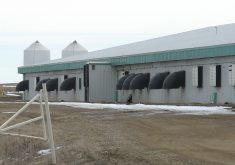The U.S. Department of Agriculture wants to prevent litigation from holding up the approval of genetically modified crops.
U.S. agriculture secretary Tom Vilsack recently told the House of Representatives’ agriculture committee that legal challenges of variety approvals are creating uncertainty for growers and biotechnology companies.
The length of time it takes the USDA’s Animal and Plant Health Inspection Service (APHIS) to complete a review has increased dramatically.
“The combination of an increased number and complexity of the petitions combined with the time consuming litigation has really slowed us down. I fear that if we don’t address these issues comprehensively, innovation will be discouraged,” Vilsack told the committee.
Read Also

Phosphate prices to remain high
Phosphate prices are expected to remain elevated, according to Mosaic’s president.
APHIS made its final decision to deregulate GM alfalfa in June 2005.
However, procedural legal challenges launched by the Center for Food Safety forced the agency to spend another six years to come to the same conclusion.
“The situation needs to be resolved. The legal challenges and the resulting effects have created uncertainty for all growers,” Vilsack said.
“To help minimize that uncertainty, as well as the other impacts and costs of litigation, USDA is committed to seeking solutions that will end or limit litigation and thereby benefit agriculture as a whole.”
Andrew Kimberly, executive director of the Center for Food Safety, said Vilsack is misguided if he thinks he can prevent future lawsuits.
“They’re not going to avoid litiga-
tion because we’re going to sue them in the next few days on this alfalfa decision.”
He said APHIS’s new environmental impact statement is “hopelessly inadequate” and ignores more than 200,000 submissions that were critical of the draft version of the document.
The centre will be asking the courts to again overturn the approval.
“It goes right back against the same judge that ruled against them the first time,” he said.
Farm and consumer groups were watching the alfalfa decision in what had become a battleground for agricultural biotechnology.
Kimbrell said it appeared as though the USDA was set to partially deregulate the crop by insisting on certain government-mandated measures to separate GM alfalfa from conventional alfalfa.
However, he said the agency caved at the last minute under pressure from Republicans, biotechnology companies and other pro-biotech groups.
The Council for Biotechnology Information issued a news release a week before the USDA’s alfalfa announcement condemning the department for drifting away from a science-based regulatory system at the behest of anti-biotechnology forces.
It said the partial deregulation would render 20 percent of U.S. alfalfa acres off limits to growers who wanted to plant GM alfalfa and told the USDA it had to stop kowtowing to anti-biotechnology groups.
“It needs to return to judging the facts and evidence impartially and apolitically,” said council member Bruce Chassy, a food science and human nutrition professor at the University of Illinois.
Vilsack responded to such concerns in his speech to the House agriculture committee.
“I want to reassure everyone that USDA will continue to adhere to a scientific, risk based decision-making process and that our decisions will continue to be driven by science.”
Kimbrell expects the department will soon approve GM sugar beets and GM corn and soybean crops tolerant to herbicides.
The centre anticipates it will also launch lawsuits in those decisions.















